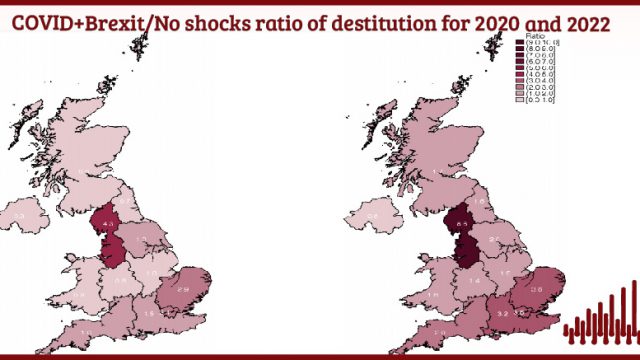Scotland’s Lender of Last Resort Options
 Pub. Date
Pub. Date
 Pub. Type
Pub. Type
Scotland’s lender of last resort options depends on its choice of currency. If Scotland becomes independent, there is no question that it could use sterling. But this looks likely to be without the backing of the UK government and therefore without the Bank of England. Using sterling in these circumstances would constitute an informal currency union or ‘dollarization’.
An independent Scotland would require a financial border to create its own balance of payments. This would include cross border trade and capital flows to and from the rest of the world, including the rest of the UK. With dollarization, the balance of payments would become the key barometer of whether the Scotland’s economy prospers or declines.
Banking groups will also have to decide which side of the financial border to register. Where banks are registered (incorporated) matters for which government provides the deposit insurance, who regulates the banks, who is likely to receive emergency liquidity support and which taxpayers pay for any losses in the case of future failures.
The Bank of England carries out regular sterling liquidity operations with banks from all over the world, and would surely do so for banks from an independent Scotland. But in times of financial distress, when liquidity insurance is most valuable, the Chancellor decides emergency sterling liquidity assistance, presumably in the rest of the UK's interests.
The back-stop for lender of last resort is always the state (or the IMF). The Scottish government could, in theory, use foreign exchange and fiscal reserves to provide lender of last resort support to banks. But if the Scottish government accepts its 'fair share' of assets and liabilities, it would have small foreign exchange reserves and a high public debt burden.
This paper looks at three possible solutions: creating a new Scottish Insurance Fund, negotiating a commercial lender of last resort line of credit with the Bank of England and whether the nascent European Banking Union could be a lender of last resort. We suspect that the only realistic option involves terms that would not be acceptable any government.
Without a credible solution to the lender of last resort, the Prudential Regulatory Authority is likely to require systemically important banks using sterling to be domiciled in the UK. Shareholders, customers and rating agencies are also all likely to prefer systemically important banks to be located in the UK.
Exports of financial services accounts for 15% of total Scottish exports (or almost 9% of GDP), and most of which go to the rest of the UK. The prospects for the financial sector matter for the balance of payments and for Scotland's prosperity. Finding a credible solution to the lender of last resort problem is important if Scotland ends up with dollarization. Part of the solution may require Scotland to have its own currency instead.
























